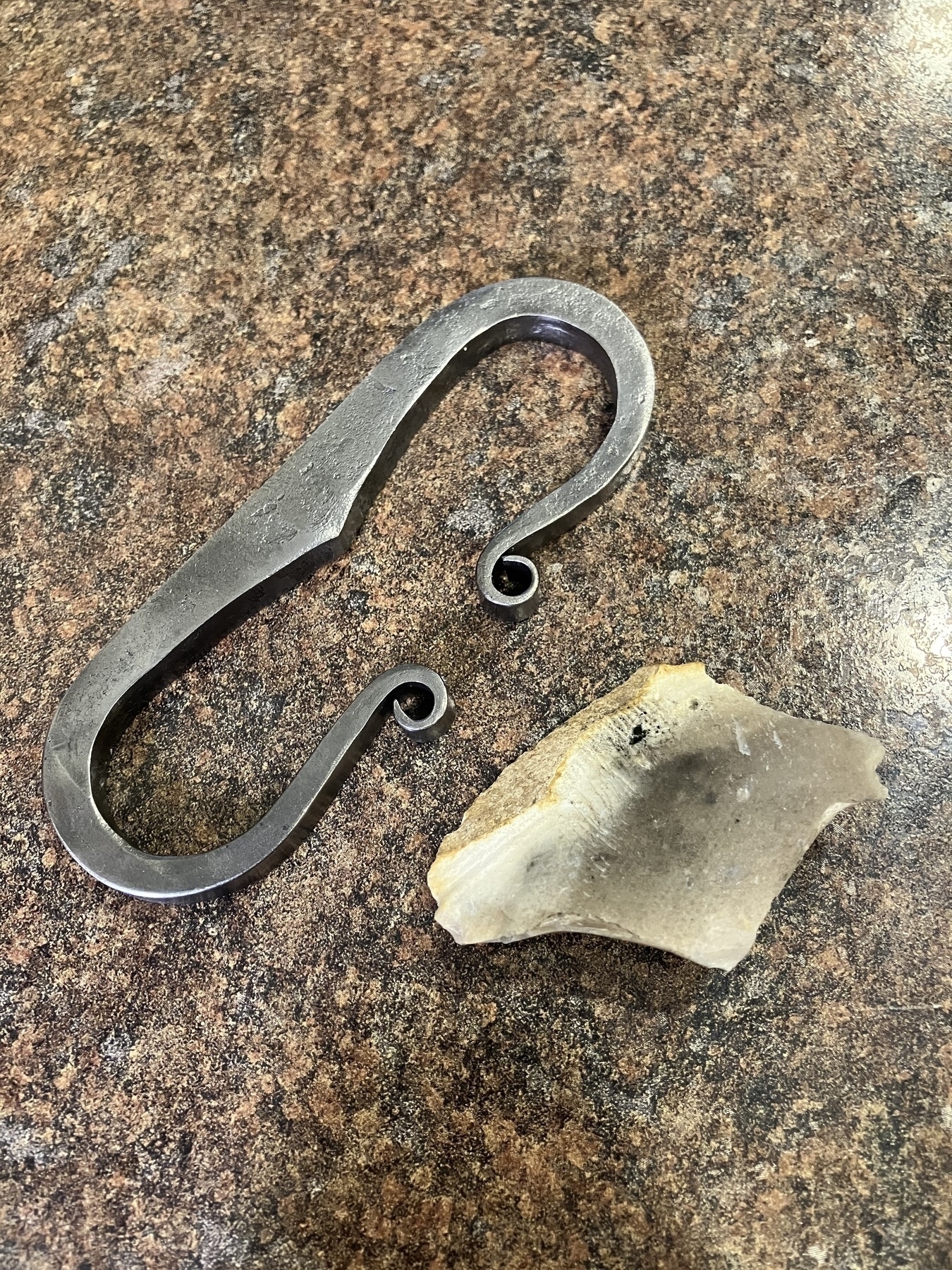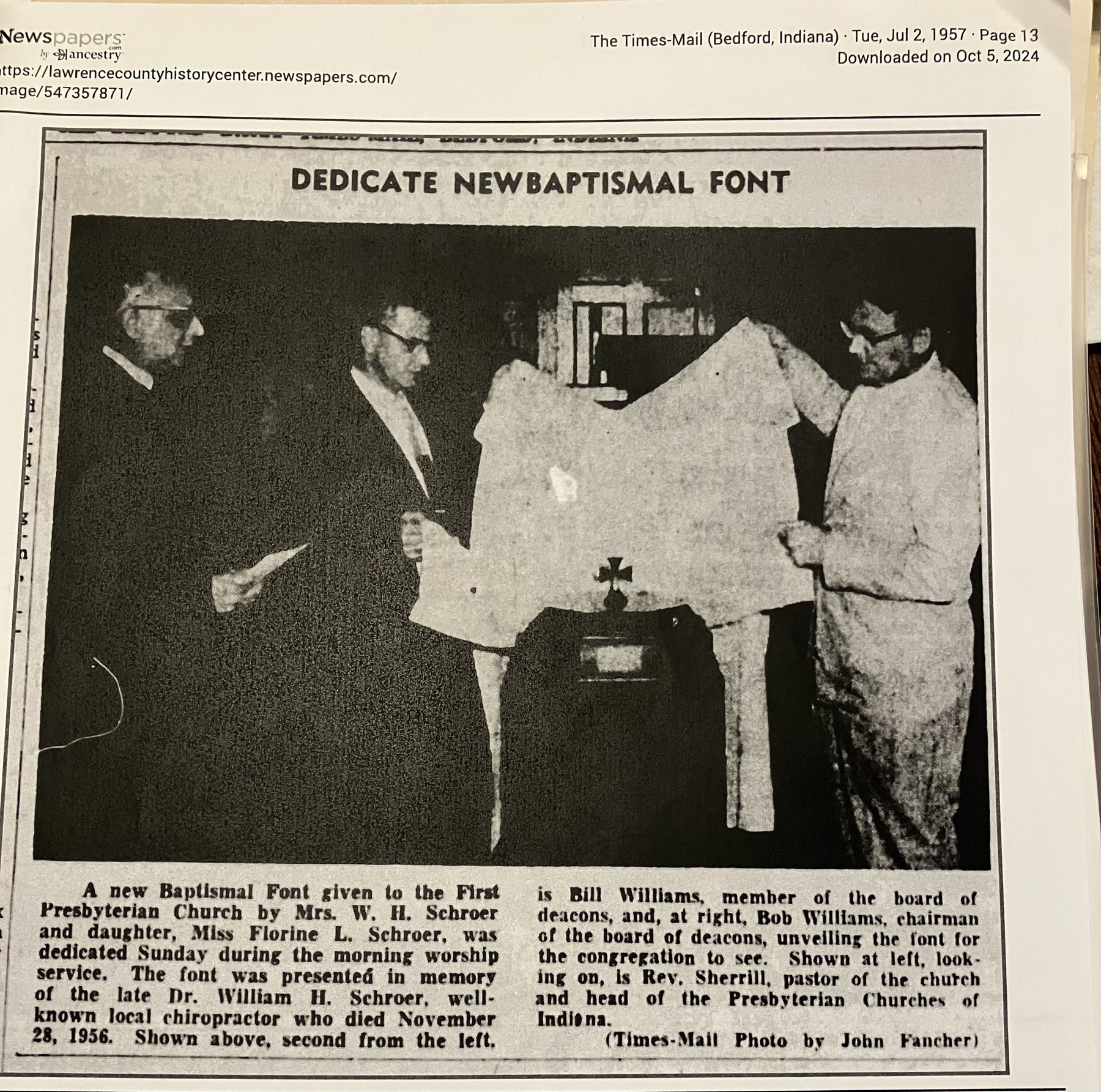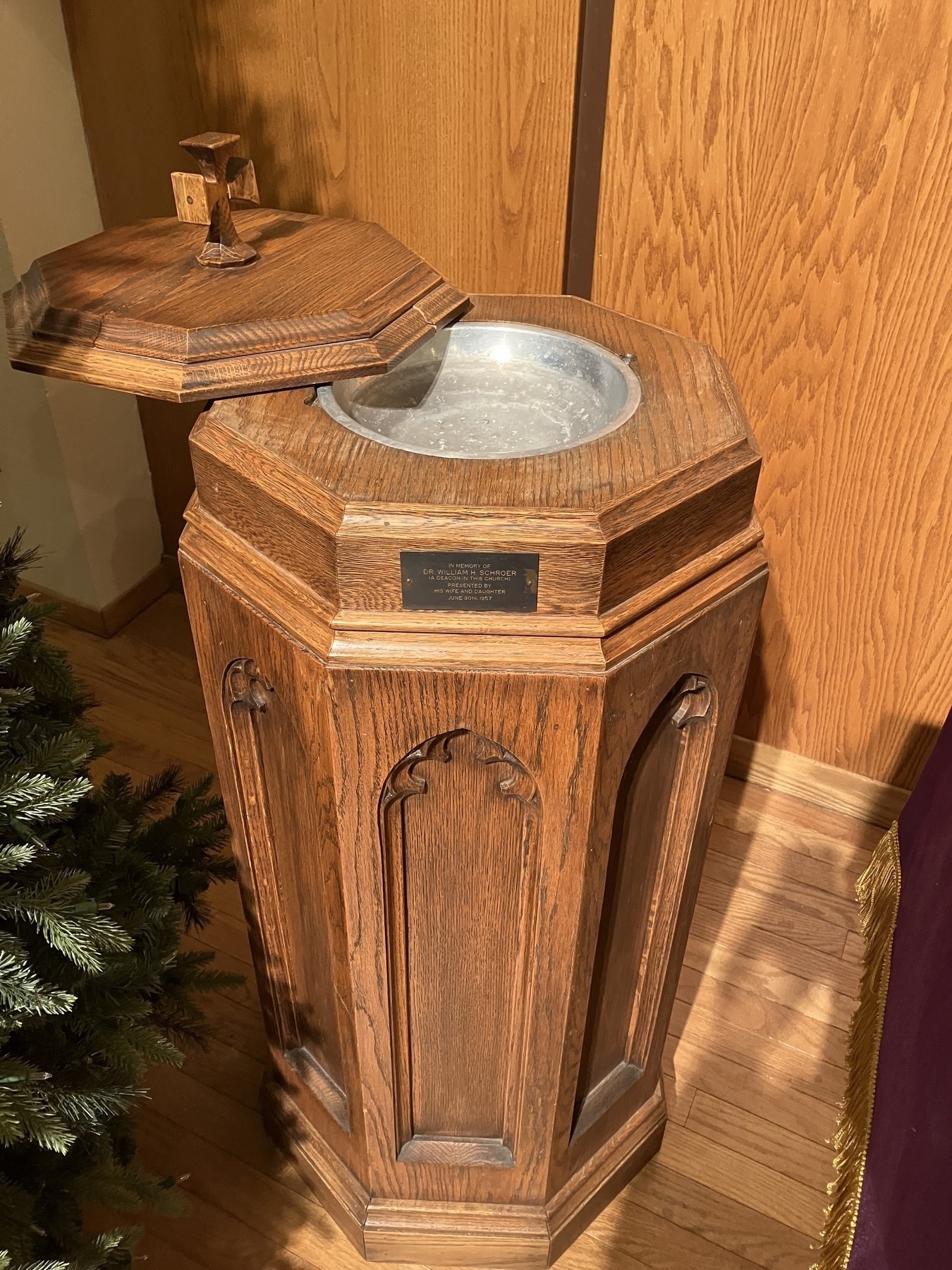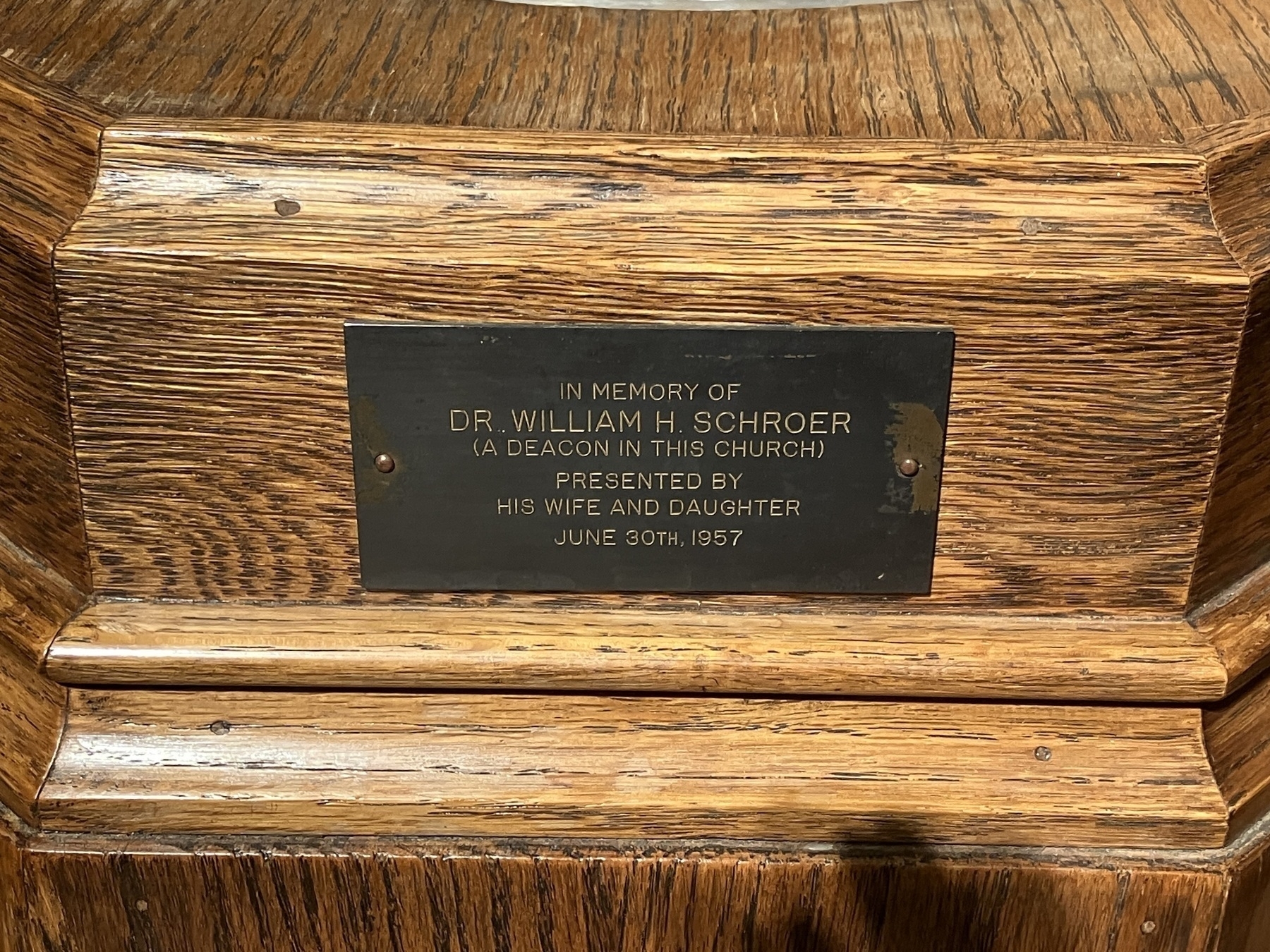One benefit of living in a small town: parades with fire trucks and classic cars and tractors and the high school marching band and Shriners.
Got a flint and steel in the mail today and I’ve successfully made a small fire from it. The plan is to use it to make a Yule fire two weeks from today. I’ll practice a few more times. I recall an Episcopal priest’s repeated failures one Sunday and I’d like to avoid a similar episode.

There are many powers in this world. Which ones am I feeding with my time, attention, money, energy?
Cheap man’s mocha: half a mug brewed coffee, half a mug milk (I used oatmilk), 1 tablespoon cocoa, 1 tablespoon sugar.
I’ve added “The Owens House” as a blog category to contain all posts about the history of our house. This will interest exactly one reader of this blog (Rachel)–who will also not like the fact that I’ve called it the Owens House. But I like it, and it’s my blog, so there.
I recently wrote a bit about the Schroers, who were the second family to live in our house. Over the weekend, there was a tour of some of the local historic churches and one of them was First Presbyterian, where Dr. Schroer was a deacon. We definitely wanted to go to that one because we knew from this news clipping that his wife and daughter donated a baptismal font after his death:

Thankfully, it was still there:


We were glad to be able to give the members of the church a bit more background information on their baptismal font in exchange for adding a couple of images to our house lore.
What if Trump isn’t lying so much as attempting to shape reality around himself? We know he was influenced by Norman Vincent Peale. It wouldn’t be far from that to something like New Thought. UPDATE: See here for an article linking Trump with New Thought.
I cannot, of course, provide documentary proof for that claim. But as the Marxists used to say I believe it is no accident that the shaking of the foundations of the global economy and “the longest period of declining real incomes in recorded economic history” happened just as the iPhone was taking serious hold on the imagination of the developed world, and Facebook and Twitter were becoming key components of everyday life in that world. On your smartphones you can get (a) a stream of prompts for visceral wrath and fear and then (b) games and distractions that accomplish the suddenly-necessary self-soothing. Between the wrath and fear and the subsequent soothing, who can remember what happened last week, much less ten years ago? Silicon Valley serves the global capitalist order as its Ministry of Amnesia. “What is it I was so concerned about?”
We got all festive today! This morning we cut our Christmas tree and decorated it. This is our second year with a live tree and I think we’re officially converts. We also set up a Yule space (pictured is the Yule log centerpiece). We’ve been looking into some Yule traditions and developing a plan.


Good essay from @tinyroofnail:
But here again Farmer stands out as an example. He did not begin by trying to change the world, but by applying himself to something relatively small. Whether in Haiti or in downtown Augusta, each of us can be inspired to do the same.